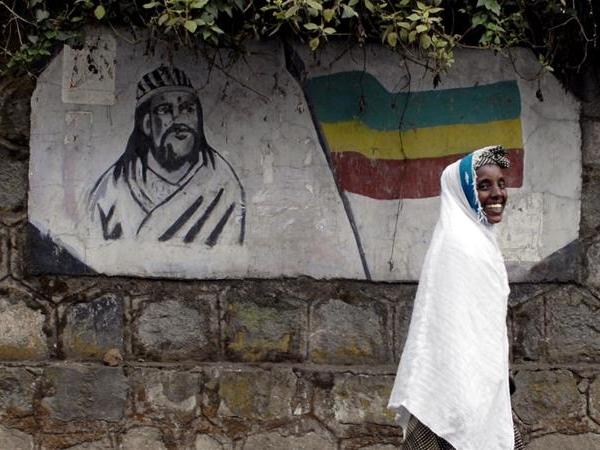British museum agrees to return 'stolen' Ethiopian emperor's hair
Ethiopian Embassy hails Museum's decision as an "exemplary gesture of goodwill"

A British museum is set to repatriate two locks of hair belonging to an Ethiopian emperor to the African nation following a successful to campaign for the return of the ancient artefacts stolen by British troops.
The hair of widely revered Tewodros II was donated to the National Army Museum in London in 1959 by relatives of an artist who painted the emperor on his deathbed.
However, outcry erupted in Ethiopia last year over the display of the tresses in an exhibit by the National Army Museum on the 1868 British expedition to what was then called Abyssinia.
At the time, Ethiopia's minister for culture and tourism, Hirut Woldemariam, slammed the exhibition, telling the Associated Press that “displaying human parts in websites and museums is inhumane.”
Ethiopia's government also vowed it would use ”whatever legal and diplomatic instruments“ to secure the return of related items including an intricate golden crown.
Terri Dendy, the National Army Museum's head of collections standards and care, said in a statement that the “decision to repatriate is very much based on the desire to inter the hair within the tomb alongside the emperor” at a monastery in northern Ethiopia.
While it is not clear when the official handover will take place, the Ethiopia embassy commended the museum's decision as an “exemplary gesture of goodwill,” adding that “a display of jubilant euphoria is to be expected when (the hair) is returned to its rightful home.”
The development comes as more African countries demand the return of looted artefacts currently on display at institutions overseas. According to industry experts, an estimated 90 per cent of African art is outside the continent, including statues, thrones and manuscripts.
In 2018, a report commissioned by French President Emmanuel Macron recommended French museums give back works that were taken without consent if African countries request them.
Yonas Desta, director-general of Ethiopia's Authority for Research and Conservation of Cultural Heritage, said the country would continue to seek to reclaim heritage taken decades, even centuries, ago.
“Some items in private collections have already been returned but the bulk of the items are in public collections within the UK and those cannot be restituted without an act of Parliament, and that is something that requires a big change in popular opinion and a bill has to be presented by members of Parliament,” he told AP. “This is something that cannot be done overnight.”
Additional reporting from AP
*This article was amended to say the locks of hair were kept in the National Army Museum, not the V&A as initially stated
Join our commenting forum
Join thought-provoking conversations, follow other Independent readers and see their replies
Comments
Bookmark popover
Removed from bookmarks